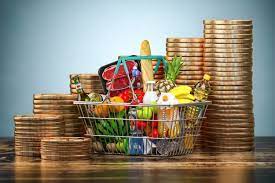Prices in British shops in January were 8.0% higher than a year before, the biggest annual increase since at least 2006 when comparable records started, figures from the British Retail Consortium (BRC) showed.
Food inflation accelerated to 13.8% in January, up from 13.3% in December. This is above the 3-month average rate of 13.2%. This is the highest inflation rate in the food category on record while non-Food inflation accelerated to 5.1% in January, up from 4.4% in December. This is in line with the 3-month average rate of 4.7%. Inflation rose to a fresh high in this category.
Fresh Food inflation accelerated in January to 15.7%, up from 15.0% in December. This is above the 3-month average rate of 15.0%. This is the highest inflation rate in the fresh food category on record.
Helen Dickinson OBE, Chief Executive of the British Retail Consortium, said:
“Retail prices rose in January as discounting slowed and retailers continued to face high input costs. Ambient food inflation accelerated the most as wholesale and bulk prices grew, particularly for sugar and alcohol. Fresh food prices also remained high due to increased food production costs as well as elevated wholesale fruit and vegetable prices. Meanwhile, clothing and footwear prices eased, so customers were able to replenish their wardrobes with some bargains during the January sales.”
“With global food costs coming down from their 2022 high and the cost of oil falling, we expect to see some inflationary pressures easing. However, as retailers still face ongoing headwinds from rising energy bills and labour shortages, prices are yet to peak and will likely remain high in the near term as a result.”







